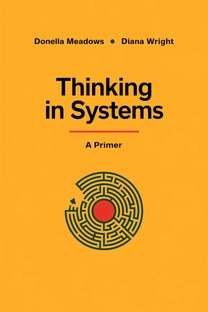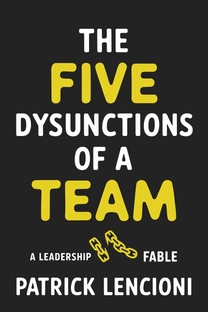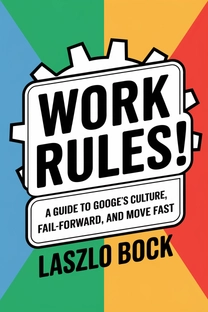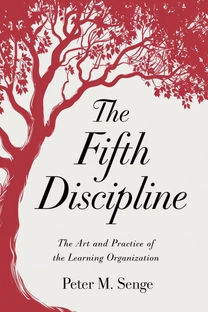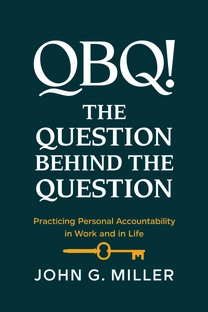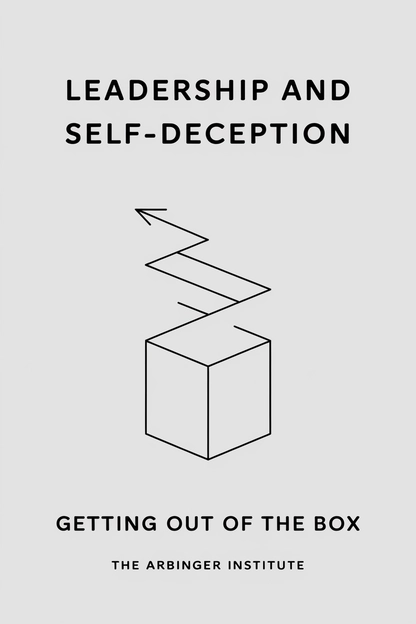
Leadership and Self-Deception
Getting Out of the Box
by The Arbinger Institute
Brief overview
This book explores how the ways we justify our actions can blind us to our own role in problems. Through a relatable story, it reveals how seeing others as mere obstacles can sabotage both personal relationships and organizational results. By understanding and escaping these self-deceptions, readers can foster genuine collaboration and better leadership.
Introduction
Have you ever wondered why some conflicts never seem to resolve, no matter how hard people try? This story-based approach shines a light on why we often stay stuck. It turns out that the biggest obstacles may lie in our own tendency to justify ourselves, even as we place blame on everyone else.
In this book, a protagonist struggles with tense interactions at work, suspecting that others are the real problem. But a surprising mentor helps him see how his own unseen assumptions are feeding the very behaviors he hates. From there, the path to genuine influence and collaboration comes into focus.
By diving into the concept of “self-deception,” we discover how our minds distort reality when we don’t do what we feel we should do for others. The language of being “in the box” becomes a simple way to name this problem of self-justification, shining a spotlight on our blind spots.
Ready to learn how to escape these boxes, see other people clearly, and unite teams around real results? This summary will guide you through the key ideas about ending collusion, building better relationships, and discovering authentic leadership in every corner of life.
The Problem of Self-Deception
The book begins with a stark realization: many of our biggest frustrations are not merely external. Instead, they’re rooted in our own blindness. This blindness arises from the excuses we create when we fail to do what we sense is right.
For instance, imagine waking up to your baby crying. You feel you should get up, but you stay in bed. Almost instantly, you start painting the other person—say, your spouse—as lazy, while you label yourself as hardworking and deserving of rest. This mental shift is self-deception in action.
When we betray a sense of what we should do, our minds scramble to justify it. We inflate our own virtues while magnifying others’ faults. In this state, we become incapable of seeing reality. That is the core problem: we’re deceived about our role in the issues we face.
What is Leadership and Self-Deception about?
"Leadership and Self-Deception: Getting Out of the Box," authored by The Arbinger Institute, delves into the complex interplay of leadership, personal relationships, and self-deception. This enlightening guide unveils how people often justify their actions by seeing others as impediments rather than allies, which in turn negatively impacts both personal and organizational dynamics. Through an engaging narrative, the book coaches readers on recognizing their own roles in conflicts, encouraging them to pivot their perspectives and ultimately improve their relationships and leadership abilities.
The book emphasizes the dire consequences of self-deception, tracing how individuals fall into patterns of self-justification that obscure reality and hinder effective leadership. By unmasking these patterns, readers can learn to foster authentic connections and cultivate an environment anchored in collaboration and accountability. This transformation is indispensable, not just for professional success but for personal relationships as well, repositioning how we interpret our interactions and responsibilities across different spheres of life.
With "Leadership and Self-Deception," the Arbinger Institute provides a method to liberate oneself from these restricting inclinations, fostering environments where people treat each other as equal and essential. Its impactful lessons suggest profound ripple effects, ultimately transforming relationships, enhancing leadership styles, and amplifying productivity in all aspects of life.
Review of Leadership and Self-Deception
"Leadership and Self-Deception: Getting Out of the Box" delivers a compelling narrative that brings introspection to the forefront of leadership development. One of the book's most significant strengths is its ability to illustrate complex psychological concepts through relatable scenarios and characters. The writing is accessible to readers from all backgrounds, making the complex idea of self-deception comprehensible and actionable.
The book's unique approach lies in distinguishing "the box" of self-justification—a metaphor for the mental trap people fall into when they begin to see colleagues and loved ones as objects rather than humans with valid needs. By shedding light on this dynamic, the book outlines clear pathways for transformation, with actionable strategies that can apply across different relationship contexts, from personal homes to bustling boardrooms.
The writing style achieves a rare balance—insightful without being overwhelming, making it a valuable resource for anyone eager to enhance their leadership or interpersonal skills. While rooted in professional development, its lessons permeate personal life seamlessly, encouraging readers to become the leaders and partners that induce genuine collaboration and mutual respect. Strongly recommended, especially for leaders, team managers, and anyone invested in fostering healthier, more productive relationships.
Ultimately, "Leadership and Self-Deception" equips its readers with an invaluable toolkit. Its principal suggestion is empowering—embracing self-awareness and empathy as the cornerstones of effective leadership and personal interaction.
Who should read Leadership and Self-Deception?
- Managers seeking to cultivate authentic and effective leadership styles, enabling genuine team collaboration.
- Individuals interested in personal development wishing to foster more meaningful interpersonal relationships.
- Team leaders facing recurrent tensions within their teams who need strategies for dismantling barriers and enhancing mutual accountability.
- HR professionals and organizational development specialists aiming to inspire a culture shift towards more empathetic and responsible interactions.
- Educators or trainers looking to integrate broader psychological insights into curriculum or training sessions, especially in leadership or relationship dynamics.
About the author
Book summaries like Leadership and Self-Deception
Why readers love Mindleap
10-Minute Book Insights
Get the core ideas from the world's best books in just 10 minutes of reading or listening.
Curated For You
Discover your next favorite book with personalized recommendations based on your interests.
AI Book ExpertNew
Chat with our AI to help find the best book for you and your goals.
Reviews of MindLeap
Love how I can get the key ideas from books in just 15 minutes! Perfect for my busy schedule and helps me decide which books to read in full.
Alex R.
The summaries are incredibly well-written and the audio feature is perfect for my commute. Such a time-saver!
Jessica M.
Great app for personal growth. The insights are clear and actionable, and I love how they capture the essence of each book.
Chris P.
The app is beautifully designed and the summaries are top-notch. Definitely worth every penny!
Sarah K.















